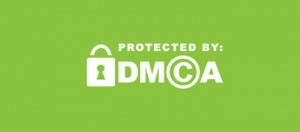Articles Posted in DMCA
DMCA Safe Harbor: Re-Register Your Designated Agent with the U.S. Copyright Office!
The U.S. Copyright Office issued a final rule effective December 1, 2016, addressing one of the requirements for social media operators and other companies that allow users to post content online to qualify for the DMCA safe harbor. In “DMCA Safe Harbor: Registration Time,” colleagues Michael Heuga and Cydney Tune discuss what companies with a DMCA designated agent need to do to satisfy the new registration requirement under the updated rule.
When It Comes to the DMCA, a Red Flag Becomes Harder to Fly
 It is unlikely that when Stephanie Lenz posted a home video of her children dancing to Prince’s “Let’s Go Crazy” on YouTube, she could have anticipated that, nearly a decade later, she would be seeking U.S. Supreme Court review in connection with that video. In Lenz v. Universal Music Corp., Ms. Lenz sued Universal Music Corporation for taking her video down from YouTube pursuant to a takedown notice sent to YouTube. That was in 2007. Universal claimed that the video violated their copyright in the “Let’s Go Crazy” song. As we previously discussed, the takedown notice is a provision in the Digital Millennium Copyright Act (DMCA) that allows copyright holders to require a service provider, like YouTube, to “expeditiously” remove copyright-infringing content in order to avoid any liability for the infringement. Critics of this provision complain that it is often abused by corporate copyright holders to unjustifiably take down content that might otherwise constitute fair use. Ms. Lenz sent a counter notification to YouTube claiming fair use, and the video was subsequently reposted weeks later. Nonetheless, Ms. Lenz sued Universal for misrepresentation based on a little used provision of the DMCA and sought a declaration that her use was non-infringing. That provision, or Section 512(c)(3)(A)(v), requires that for the takedown notice to be effective, the copyright holder must have a “good faith” belief that use of the content is not authorized by the copyright holder, its agent or the law.
It is unlikely that when Stephanie Lenz posted a home video of her children dancing to Prince’s “Let’s Go Crazy” on YouTube, she could have anticipated that, nearly a decade later, she would be seeking U.S. Supreme Court review in connection with that video. In Lenz v. Universal Music Corp., Ms. Lenz sued Universal Music Corporation for taking her video down from YouTube pursuant to a takedown notice sent to YouTube. That was in 2007. Universal claimed that the video violated their copyright in the “Let’s Go Crazy” song. As we previously discussed, the takedown notice is a provision in the Digital Millennium Copyright Act (DMCA) that allows copyright holders to require a service provider, like YouTube, to “expeditiously” remove copyright-infringing content in order to avoid any liability for the infringement. Critics of this provision complain that it is often abused by corporate copyright holders to unjustifiably take down content that might otherwise constitute fair use. Ms. Lenz sent a counter notification to YouTube claiming fair use, and the video was subsequently reposted weeks later. Nonetheless, Ms. Lenz sued Universal for misrepresentation based on a little used provision of the DMCA and sought a declaration that her use was non-infringing. That provision, or Section 512(c)(3)(A)(v), requires that for the takedown notice to be effective, the copyright holder must have a “good faith” belief that use of the content is not authorized by the copyright holder, its agent or the law.
The Dancing Baby Returns: Computer Algorithms, Good Faith and Fair Use
In “The Case of Prince, a Dancing Baby and the DMCA Takedown Notice,” we discussed the potential impact of the Ninth Circuit decision in Lenz v. Universal Music Corp., 801 F.3d 1126 (2015), a.k.a. the “dancing baby case,” in which the appeals court held that under the Digital Millennium Copyright Act (DMCA), copyright holders have a “duty to consider—in good faith and prior to sending a takedown notification—whether allegedly infringing material constitutes fair use.” However, in considering whether there is fair use, the court was “mindful of the pressing crush of voluminous infringing content that copyright holders face in a digital age.” To deal with this reality, the court affirmed that computers may be leveraged to support the fair use analysis.
Twitter, the Drone Selfie and Charting a Course for New Technology
A recently published patent application filed by Twitter provides a possible glimpse into the future of social media and selfies—and it’s a future arriving on the wings of that poster child of modern technology, the unmanned aerial vehicle (UAV), or drone. The patent indicates that Twitter may be experimenting with a system in which its users can use messages such as tweets to control drones, including taking photos and videos that may be streamed and shared with others in real-time through their user accounts. When asked by CNBC about this system, Twitter offered only a two-word explanation: “Drone selfies.” While Twitter’s plans for this technology as yet remain unclear, any company considering a system to enable capture and sharing of drone selfies or other drone-captured content (e.g., event livestreams) should consider the potential legal implications, some of which include Federal Aviation Administration (FAA) guidelines and regulations, the Digital Millennium Copyright Act (DMCA), and privacy and other tort-related laws.
The Complicated Relationship between DMCA Takedown Notices and the Word “Expeditious”
Hours. Days. Weeks. Months. When it comes to acting on copyright infringement takedown notices, just how fast is fast enough for social media platforms? Some recent (and not-so-recent) cases reveal how difficult the question has proven for the courts.
Google Gives Fair Use on YouTube a Fighting Chance
Last month, Google announced a groundbreaking policy that may help shift the balance of power between copyright claimants and those who upload YouTube videos that may be covered by fair use. According to Google’s Public Policy Blog, users upload more than 400 hours of video every minute. Those uploads sometimes make use of existing video or music clips in new and transformative ways. When uploads transform the original work in this way (such as a parody or critique), it adds social value beyond the value contained in the original work. In the United States, a transformative use is considered a fair use and exempted from copyright infringement liability.
New DMCA Exemption Keeps Enthusiasts in the Game
Due to efforts by the Electronic Frontier Foundation (EFF), the Library of Congress adopted in its recent guidelines a limited exemption to the Digital Millennium Copyright Act (DMCA), allowing gamers and preservationists to modify a video game to restore access to the video game for “local gameplay.” Specifically, a video game owner may modify an old video game to avoid the need for an authentication process when the copyright owner no longer supports the servers that facilitate such a process. This exemption will provide video game enthusiasts with the ability to play many classic video games. While this exemption is a victory for gamers and preservationists, not all of them are celebrating, given that the Library of Congress did not agree with the EFF on its other proposals related to the preservation of video games.
Establishing the Boundaries of the OCILLA Safe Harbor
As user-generated content explodes over the Internet, intellectual property disputes over posting or uploading such content without the owner’s consent continue to escalate. As we touched on in a recent post, social media platforms, hosting websites or other online service providers (OSPs) may be entrapped in these disputes based on the infringing actions of users of these OSPs. In such a situation, the Digital Millennium Copyright Act (DMCA) provides a safe harbor provision to the OSP known as the Online Copyright Infringement Liability Limitation Act (OCILLA.) This provision, found at 17 U.S.C. § 512(c), protects service providers from liability for “infringement of copyright by reason of the storage at the direction of a user of material that resides” on the provider’s system or network, if certain requirements are met.
The Case of Prince, a Dancing Baby and the DMCA Takedown Notice
In 2007, Stephanie Lenz posted a 29-second video to YouTube of her baby dancing in the kitchen with Prince’s “Let’s Go Crazy” playing in the background. Claiming use of their song amounted to copyright infringement, Universal Music Corp. (Universal) sent YouTube a takedown notice under the Digital Millennium Copyright Act (DMCA). Lenz, with representation provided by the Electronic Frontier Foundation (EFF), sued Universal on the premise that Universal had abused the DMCA takedown provisions by violating Section 512(f), which bars misrepresentations of unauthorized use. According to Lenz, before sending its notice, they failed to take into account the possibility that Lenz’s video was shielded by the fair use doctrine. Last week, in Lenz v. Universal, a.k.a. the “dancing baby case,” the Ninth Circuit sided with Lenz in a ruling that will impose new burdens on copyright holders policing hosted content.
 Internet & Social Media Law Blog
Internet & Social Media Law Blog



